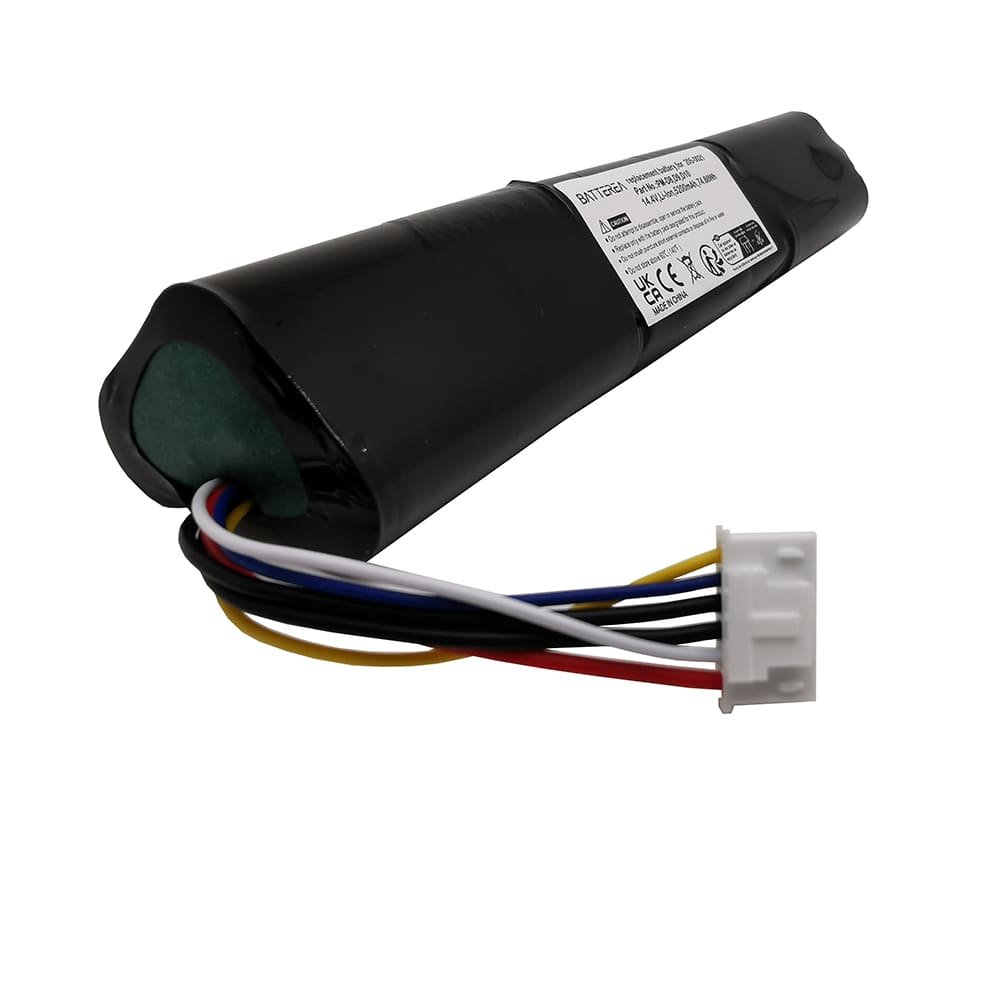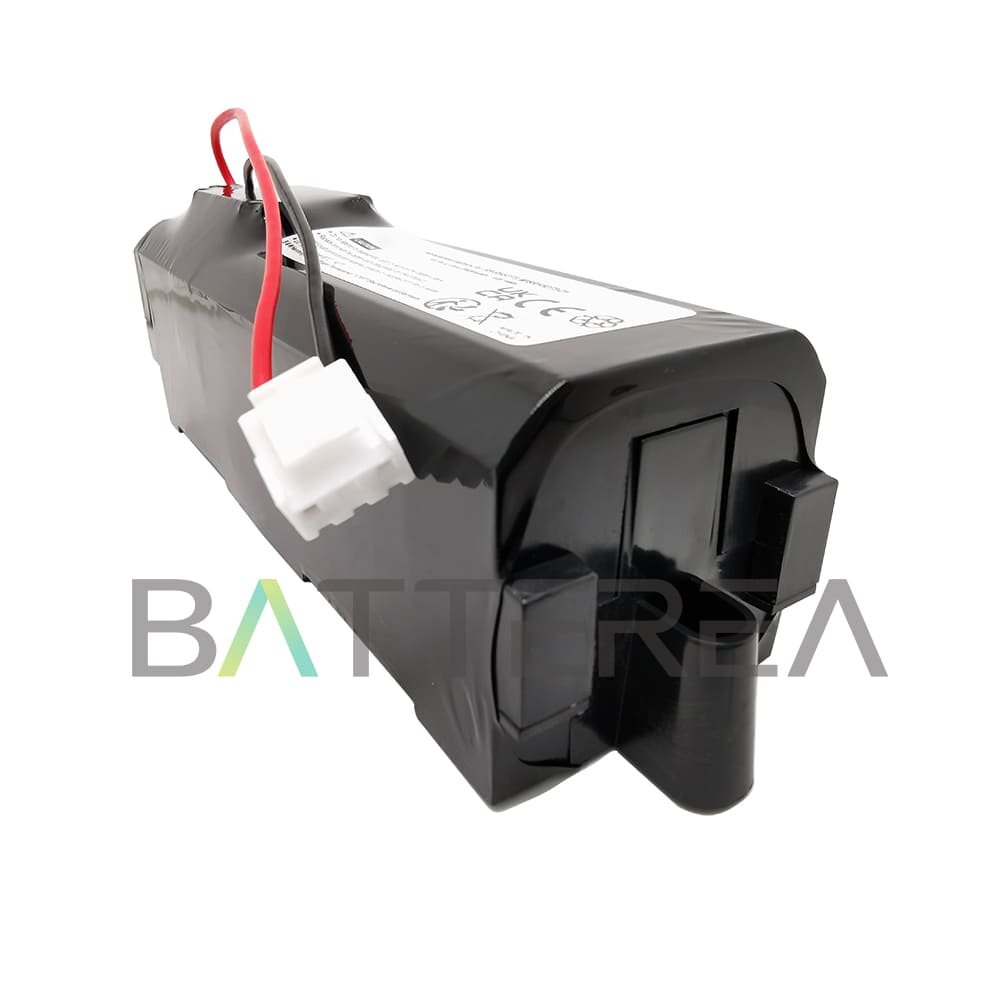It is better to store lithium battery at room temperature, like 25℃. Proper storage of lithium batteries is essential to maintain their performance, prolong their lifespan, and ensure safety.
Storage less than one month,storage temperature:-10~+45℃, relative humidity 45%~75%
Storage less than 6 months, storage temperature:-10~+35℃,relative humidity 45%~75%
For Long time storage, recommended storage temperature: 25℃ ,relative humidity 45%~75%
A comprehensive guide for storing lithium batteries safely:
- Charge Batteries to Optimal Levels:
- Before storing lithium batteries, ensure they are charged to around 50% of their capacity. Batteries stored at full charge or completely discharged may degrade faster over time.
- Before storing lithium batteries, ensure they are charged to around 50% of their capacity. Batteries stored at full charge or completely discharged may degrade faster over time.
- Choose Suitable Storage Conditions:
- Store lithium batteries in a cool, dry, and well-ventilated area away from direct sunlight and extreme temperatures. Ideal storage temperatures range between 15°C to 25°C (59°F to 77°F).
- Avoid storing batteries in places prone to high humidity, as moisture can lead to corrosion and damage.
- Use Proper Packaging and Containers:
- Store lithium batteries in their original packaging or in individual containers that provide protection against physical damage, short circuits, and environmental factors.
- Ensure that batteries are not stacked or stored in a way that may cause them to crush or puncture each other.
- Prevent Exposure to Extreme Temperatures:
- Avoid exposing lithium batteries to temperatures below freezing or above 60°C (140°F), as extreme temperatures can degrade battery performance and safety.
- If storing batteries in a vehicle, choose a location where temperatures remain within the recommended range, such as the passenger cabin rather than the trunk.
- Check Battery State Regularly:
- Periodically inspect stored batteries for signs of damage, leakage, or swelling. If you notice any abnormalities, remove the batteries from storage and dispose of them properly.
- Check battery voltage levels periodically and recharge as needed to maintain optimal storage charge levels.
- Store in Fireproof Locations:
- When storing large quantities of lithium batteries, consider storing them in fireproof cabinets or containers designed to contain fires in case of thermal runaway or accidents.
- Avoid storing batteries near flammable materials or in areas where fire hazards are present.
- Follow Manufacturer Recommendations:
- Adhere to manufacturer recommendations and guidelines for storing specific types of lithium batteries, as storage requirements may vary depending on battery chemistry, size, and application.
- Consult the battery datasheet or user manual for information on recommended storage conditions and shelf life.
- Keep Batteries Away from Children and Pets:
- Store lithium batteries out of reach of children and pets to prevent accidental ingestion or misuse.
- Educate family members and household members about the potential hazards associated with lithium batteries and the importance of proper storage and handling.
What will happen if lithium battery is not well storage?
Improper storage of lithium batteries can lead to various issues, including degradation of performance, reduced lifespan, and safety hazards. Here are some potential consequences of not storing lithium batteries properly:
- Accelerate the self-discharge rate:
- Lithium batteries have a natural tendency to self-discharge over time, even when not in use. However, improper storage conditions, such as exposure to high temperatures or humidity, can accelerate the self-discharge rate, causing batteries to lose their charge more rapidly.
- Lithium batteries have a natural tendency to self-discharge over time, even when not in use. However, improper storage conditions, such as exposure to high temperatures or humidity, can accelerate the self-discharge rate, causing batteries to lose their charge more rapidly.
- Capacity Loss:
- Exposure to extreme temperatures, especially high temperatures, can lead to capacity loss and reduced energy storage capabilities in lithium batteries. Over time, this can result in decreased runtime and overall performance when the batteries are eventually used.
- Exposure to extreme temperatures, especially high temperatures, can lead to capacity loss and reduced energy storage capabilities in lithium batteries. Over time, this can result in decreased runtime and overall performance when the batteries are eventually used.
- Leakage and Corrosion:
- Storage in humid environments or exposure to moisture can cause lithium batteries to leak electrolyte or corrode internally. This can damage the battery terminals, casing, and internal components, leading to potential performance issues and safety hazards.
- Storage in humid environments or exposure to moisture can cause lithium batteries to leak electrolyte or corrode internally. This can damage the battery terminals, casing, and internal components, leading to potential performance issues and safety hazards.
- Internal Shorts:
- Physical damage or mishandling during storage, such as dropping or crushing, can cause internal shorts in lithium batteries. Internal shorts can lead to thermal runaway, where the battery rapidly heats up and may catch fire or explode, posing significant safety risks.
- Physical damage or mishandling during storage, such as dropping or crushing, can cause internal shorts in lithium batteries. Internal shorts can lead to thermal runaway, where the battery rapidly heats up and may catch fire or explode, posing significant safety risks.
- Swelling and Bulging:
- Lithium batteries may experience swelling or bulging when stored under conditions of high temperature or overcharge. This is typically caused by the buildup of gas inside the battery due to chemical reactions, leading to deformation of the battery casing and potential leakage of electrolyte.
- Lithium batteries may experience swelling or bulging when stored under conditions of high temperature or overcharge. This is typically caused by the buildup of gas inside the battery due to chemical reactions, leading to deformation of the battery casing and potential leakage of electrolyte.
- Loss of Cycle Life:
- Improper storage conditions can contribute to accelerated degradation of lithium battery components, such as electrodes and electrolytes. This can result in a shorter cycle life and reduced overall lifespan of the batteries, requiring more frequent replacements.
- Improper storage conditions can contribute to accelerated degradation of lithium battery components, such as electrodes and electrolytes. This can result in a shorter cycle life and reduced overall lifespan of the batteries, requiring more frequent replacements.
- Safety Hazards:
- In extreme cases, improper storage of lithium batteries can pose safety hazards, including thermal runaway, fire, and explosion. Elevated temperatures, physical damage, or exposure to incompatible materials can trigger hazardous reactions within the battery, leading to catastrophic failure.
- In extreme cases, improper storage of lithium batteries can pose safety hazards, including thermal runaway, fire, and explosion. Elevated temperatures, physical damage, or exposure to incompatible materials can trigger hazardous reactions within the battery, leading to catastrophic failure.
Could you charge the lithium battery during long time storage?
During long-term storage, it’s generally recommended to periodically recharge lithium batteries to maintain their health and prevent capacity loss. The frequency of charging depends on several factors, including the type of lithium battery, storage conditions, and manufacturer recommendations.
- For lithium-ion batteries, it’s advisable to perform maintenance charging every 3 to 6 months during long-term storage. This involves partially charging the battery to around 50% to 70% of its capacity to prevent over-discharge and maintain optimal storage charge levels.
- Lithium iron phosphate (LiFePO4) batteries are more tolerant to long-term storage without maintenance charging. However, it’s still beneficial to perform occasional top-up charges every 6 to 12 months to ensure the battery remains in good condition.
- If batteries are exposed to high temperatures, high humidity, or other adverse conditions, more frequent maintenance charging may be necessary to prevent capacity loss and degradation.
- Lithium-ion batteries generally have higher self-discharge rates compared to lithium iron phosphate (LiFePO4) batteries, necessitating more frequent maintenance charging.
- Check if the battery pack includes BMS functionalities and follow any specific recommendations provided by the manufacturer for storage and maintenance charging.
- Regularly monitor the state of stored lithium batteries for signs of capacity loss, voltage drop, or physical damage. If batteries exhibit abnormal behavior or deterioration during storage, consider increasing the frequency of maintenance charging or consulting with the manufacturer for guidance.
How do we store the lithium battery in factory?
- Choose Suitable Storage Area:
- Select a dedicated storage area within the factory that is well-ventilated, cool, and dry. Avoid areas with direct sunlight, high temperatures, humidity, or moisture, as these conditions can degrade battery performance and safety.
- Select a dedicated storage area within the factory that is well-ventilated, cool, and dry. Avoid areas with direct sunlight, high temperatures, humidity, or moisture, as these conditions can degrade battery performance and safety.
- Ensure Adequate Ventilation:
- Provide sufficient ventilation in the storage area to prevent the buildup of gases and heat, especially if storing large quantities of lithium batteries. Proper ventilation helps dissipate heat and reduces the risk of thermal runaway or fire hazards.
- Provide sufficient ventilation in the storage area to prevent the buildup of gases and heat, especially if storing large quantities of lithium batteries. Proper ventilation helps dissipate heat and reduces the risk of thermal runaway or fire hazards.
- Use Fireproof Storage Cabinets or Rooms:
- Store lithium batteries in fireproof cabinets or rooms designed to contain fires in case of thermal runaway or accidents. Fireproof storage solutions help mitigate the risks associated with battery failures and protect surrounding areas and personnel.
- Store lithium batteries in fireproof cabinets or rooms designed to contain fires in case of thermal runaway or accidents. Fireproof storage solutions help mitigate the risks associated with battery failures and protect surrounding areas and personnel.
- Organize and Label Batteries:
- Organize lithium batteries systematically on shelves or racks to facilitate easy access and inventory management. Use clear labeling to identify battery types, chemistries, capacities, and storage dates for tracking purposes.
- Organize lithium batteries systematically on shelves or racks to facilitate easy access and inventory management. Use clear labeling to identify battery types, chemistries, capacities, and storage dates for tracking purposes.
- Prevent Physical Damage:
- Handle lithium batteries with care to prevent physical damage during storage. Avoid dropping, crushing, or puncturing batteries, as this can lead to internal shorts, leakage, or other safety hazards.
- Handle lithium batteries with care to prevent physical damage during storage. Avoid dropping, crushing, or puncturing batteries, as this can lead to internal shorts, leakage, or other safety hazards.
- Maintain Proper Charging Levels:
- Before storing lithium batteries in the factory, ensure they are charged to around 50% to 70% of their capacity. This helps prevent over-discharge and maintains optimal storage charge levels during storage.
- Before storing lithium batteries in the factory, ensure they are charged to around 50% to 70% of their capacity. This helps prevent over-discharge and maintains optimal storage charge levels during storage.
- Implement Safety Protocols:
- Establish safety protocols and guidelines for handling, storing, and disposing of lithium batteries in the factory. Train personnel on proper procedures for battery storage and emergency response in case of accidents or incidents.
- Establish safety protocols and guidelines for handling, storing, and disposing of lithium batteries in the factory. Train personnel on proper procedures for battery storage and emergency response in case of accidents or incidents.
- Monitor Battery State:
- Regularly inspect stored lithium batteries for signs of damage, leakage, swelling, or corrosion. Perform visual checks and battery voltage measurements to ensure batteries are in good condition and maintain proper storage charge levels.
- Regularly inspect stored lithium batteries for signs of damage, leakage, swelling, or corrosion. Perform visual checks and battery voltage measurements to ensure batteries are in good condition and maintain proper storage charge levels.
- Adhere to Regulations and Standards:
- Comply with industry regulations, safety standards, and guidelines governing the storage of lithium batteries in factory environments. Stay informed about any updates or changes to regulatory requirements to ensure compliance.
- Comply with industry regulations, safety standards, and guidelines governing the storage of lithium batteries in factory environments. Stay informed about any updates or changes to regulatory requirements to ensure compliance.
- Dispose of Damaged Batteries Properly:
- Dispose of damaged or defective lithium batteries properly according to local regulations and guidelines. Implement procedures for safely handling and recycling batteries at the end of their life cycle to minimize environmental impact.
- Dispose of damaged or defective lithium batteries properly according to local regulations and guidelines. Implement procedures for safely handling and recycling batteries at the end of their life cycle to minimize environmental impact.
We are ProMax, a leading lithium battery company in China. We know how to well store lithium batteries in our warehouse. We take care of them and delivery them to your hands safely.We’ve helped many clients wholesale and customize lithium batteries from China. If you want to import lithium batteries from China, please feel free to CONTACT US.








